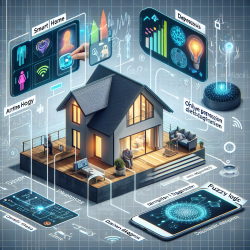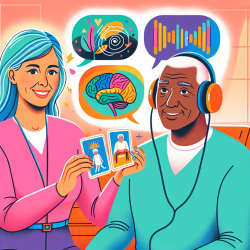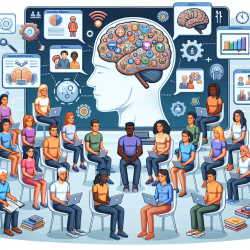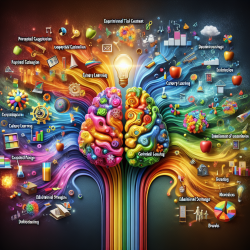Introduction
In an era where technology increasingly integrates into our daily lives, the potential for smart homes to contribute to mental health care is a promising frontier. The research article "Smart Homes as Enablers for Depression Pre-Diagnosis Using PHQ-9 on HMI through Fuzzy Logic Decision System" offers an innovative approach to using smart home technology for early detection of depression symptoms. This blog explores how practitioners can leverage these findings to enhance their skills and improve outcomes for children and adults alike.
Understanding the Research
The study introduces a three-step framework using smart home devices to administer the Patient Health Questionnaire-9 (PHQ-9), a validated tool for screening depression. The process involves:
- Administering the PHQ-9 through smart home interfaces like Alexa or gamified Human-Machine Interfaces (HMIs).
- Utilizing a fuzzy logic decision system to interpret responses and suggest actions: continue monitoring, suggest specialist referral, or mandatory specialist referral.
- Providing feedback to healthcare professionals and emergency contacts based on the analysis.
This framework aims to streamline the pre-diagnosis process, making it more accessible and less intrusive for users.
Implementing the Framework in Practice
For practitioners, integrating this technology into practice could transform the way mental health symptoms are monitored and addressed. Here are some practical steps:
- Educate Yourself: Familiarize yourself with smart home technologies and fuzzy logic systems. Understanding the basics will help you effectively implement and explain these tools to clients.
- Collaborate with Technologists: Work with technology experts to customize smart home setups that align with your clients' needs. This collaboration ensures the technology is user-friendly and effective.
- Incorporate into Routine Assessments: Use smart home interfaces to regularly administer the PHQ-9, allowing for continuous monitoring of mental health symptoms.
- Analyze and Act: Use the data collected to make informed decisions about referrals and interventions, enhancing the precision of your practice.
Encouraging Further Research
While the current research provides a solid foundation, there is ample opportunity for further exploration. Practitioners are encouraged to contribute to this growing field by:
- Conducting studies on the effectiveness of smart home-based assessments in diverse populations.
- Exploring the integration of other mental health screening tools with smart home technology.
- Investigating the long-term impacts of continuous monitoring on mental health outcomes.
Conclusion
The intersection of smart home technology and mental health care represents a significant advancement in early detection and intervention. By embracing these innovations, practitioners can enhance their practice, provide more accurate assessments, and ultimately improve outcomes for their clients.
To read the original research paper, please follow this link: Smart Homes as Enablers for Depression Pre-Diagnosis Using PHQ-9 on HMI through Fuzzy Logic Decision System.










